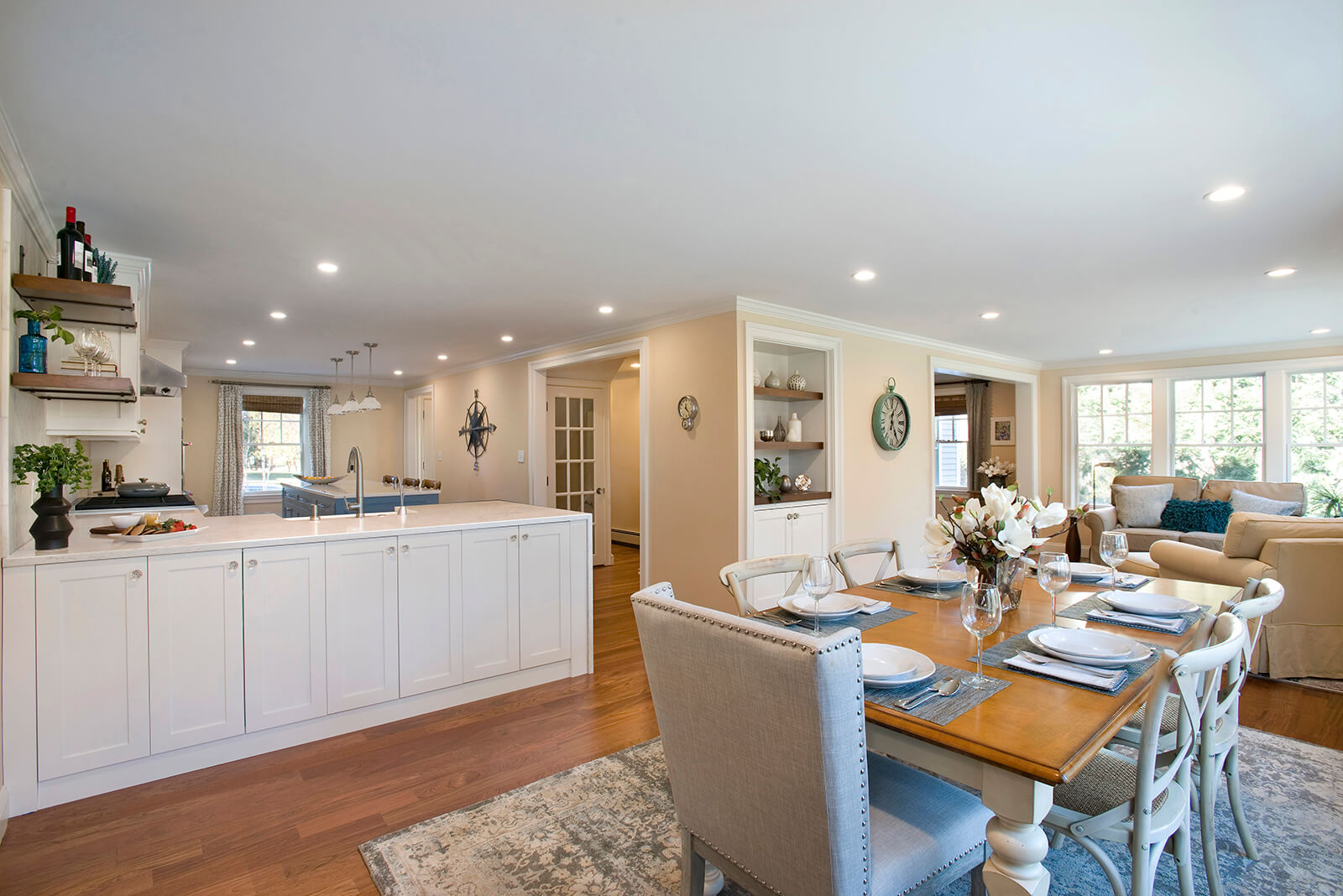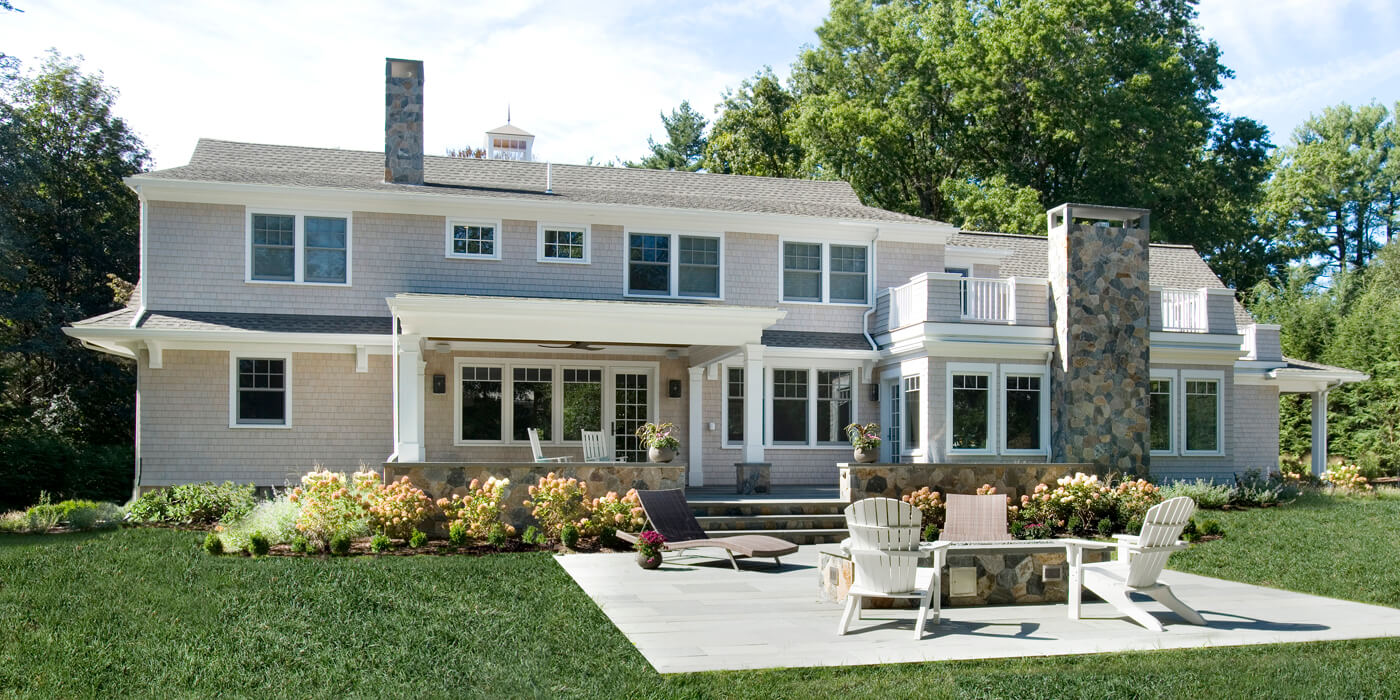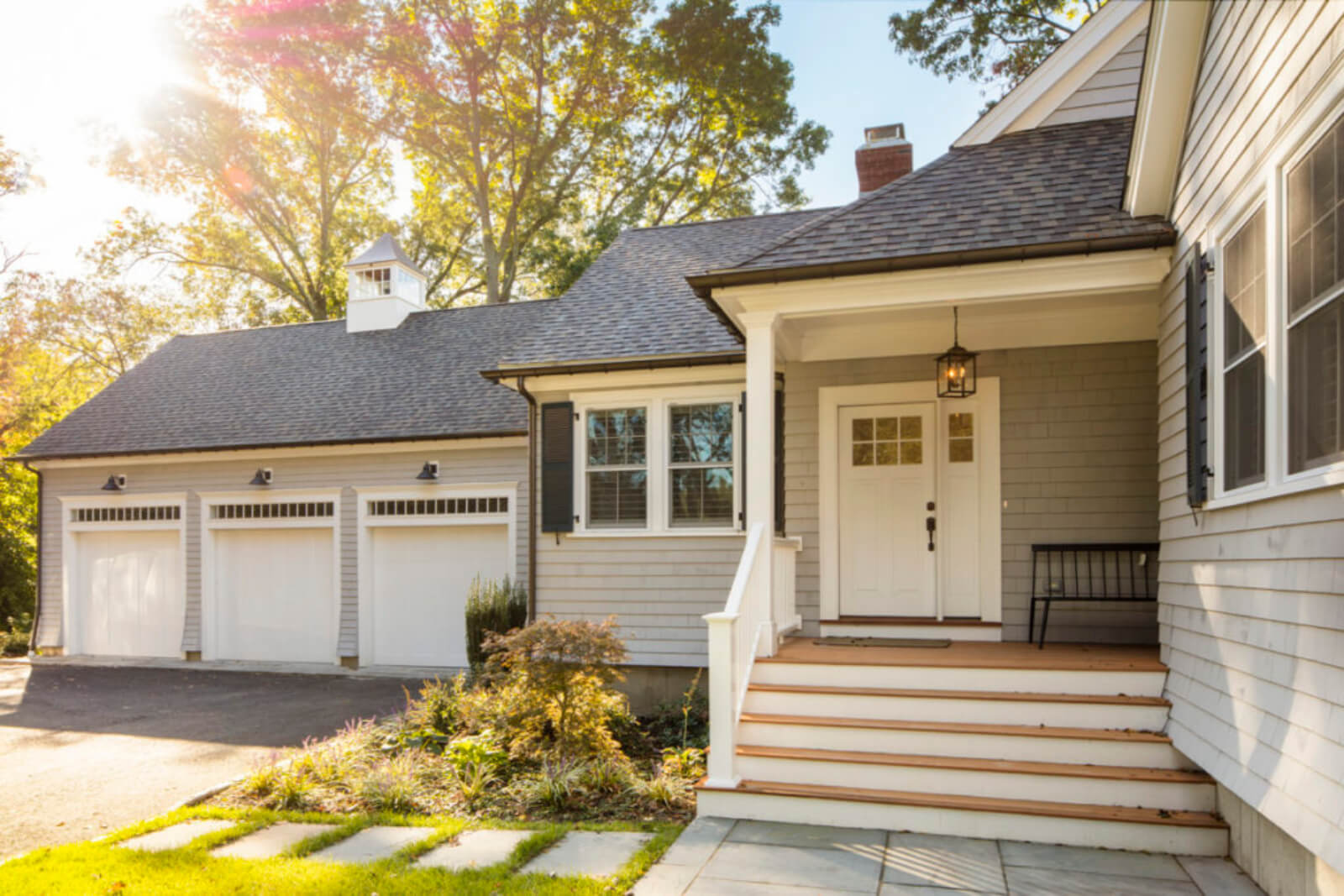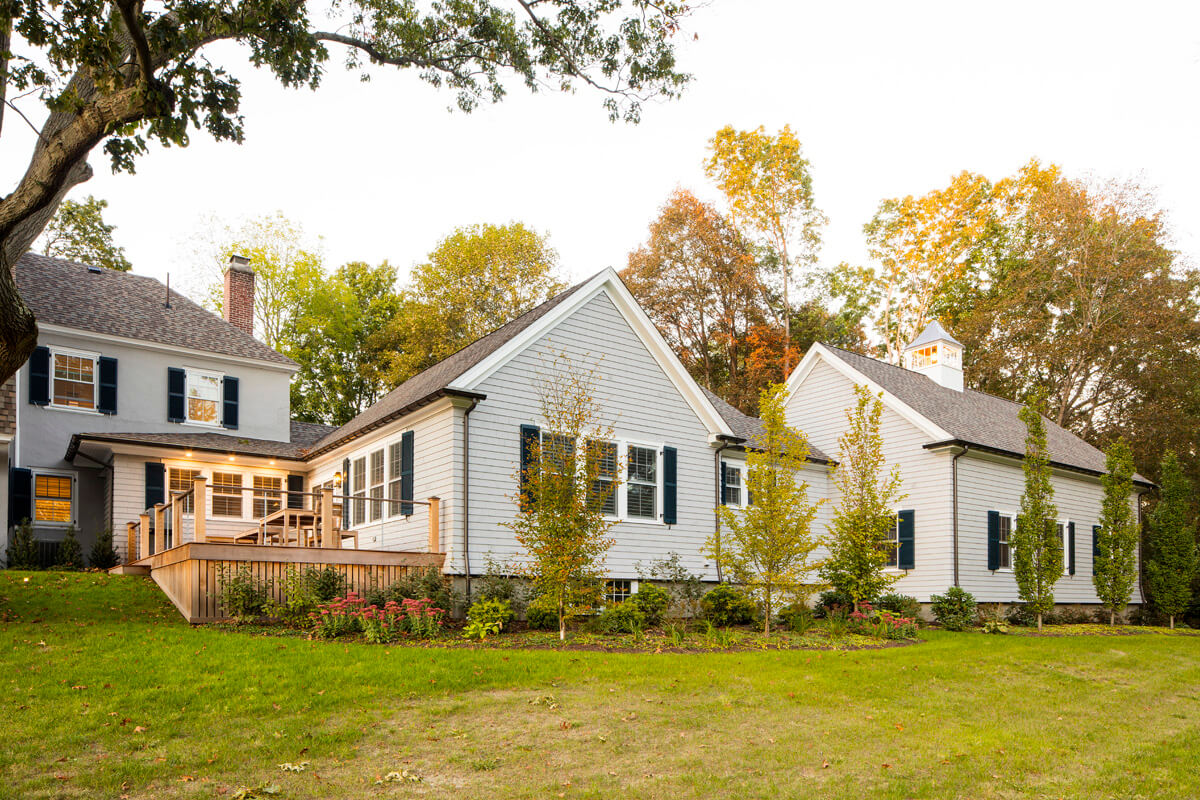Remodel, Rebuild, or Move: Which is Right for You
Deciding between remodeling, rebuilding, or moving is a significant choice for homeowners when their current living situation no longer meets their needs. Each option has its own advantages and drawbacks, and the right choice depends on a variety of personal and financial factors. This blog post delves into each option’s pros, cons, and key considerations to help you make an informed decision.

Remodeling Your Home
Embarking on a remodeling project breathes new life into your home, transforming familiar spaces into refreshed, functional areas tailored to your needs. From revamping your kitchen to reimagining your living areas, remodeling is a journey of reinvention within your own walls. It’s an adventure in customization, offering the joy of seeing your home evolve without the need to move. Despite the excitement, it’s essential to consider its pros and cons, and your other options.
Pros
- Cost Efficiency: Remodeling can be less expensive than moving or rebuilding, especially if the changes are cosmetic or minor structural adjustments.
- Improves Livability: Enhances your current home’s comfort, functionality, and aesthetic appeal.
- Increases Home Value: Strategic updates can significantly increase the value of your home for future sale.
- Customization: Remodeling provides a unique opportunity to tailor your living space to your exact specifications. Whether you dream of a gourmet kitchen, a spa-like bathroom, or a more open living area, remodeling allows you to bring those dreams to life. It’s your chance to infuse your personality and style into your home, making it truly yours.
- Less Disruption: Often allows you to stay in your home during the remodel, avoiding the need for temporary relocation.
- Faster Than Rebuilding: Typically, remodeling projects can be completed quicker than tearing down and starting from scratch.
- Preserving Home’s Character: Remodeling allows for preserving your home’s original character and history. For many homeowners, this aspect is invaluable.
Cons
- Limited by Existing Structure: The existing structure and layout of your home can impose limitations on your remodeling project. Some changes may be difficult or impossible to achieve without significant and costly alterations. Understanding these limitations early in the planning process is important.
- Unexpected Costs: One of the biggest cons of remodeling is the potential for hidden costs and budget overruns. Unforeseen issues such as electrical, plumbing, or structural problems can arise, leading to additional expenses. It’s essential to have a contingency budget in place to address these unexpected costs.
- Mess and Disruption: Living through a renovation can be stressful, messy, and disruptive to daily life.
- May Not Fix Everything: Some issues with the house may not be solvable through remodeling alone, such as location or fundamental structural problems.
- Permit and Regulation Challenges: Similar to rebuilding, renovations can also face regulatory hurdles that can delay projects or increase costs.
- Risk of Overcapitalization: Like a rebuild, you may spend more on renovations than the home is worth on the market.
Key Considerations
- Return on Investment (ROI): Assess the potential return on investment for your remodeling projects. Some renovations offer better returns than others, and understanding which updates will add the most value can help prioritize your efforts and spending.
- Structural Limitations and Historical Preservation: The existing structure of your home may limit what changes you can realistically make. Additionally, if your home is historically significant, there may be restrictions on the changes you can make, impacting your remodeling plans.
- Personal Disruption vs. Benefit: Weigh the disruption to your daily life that remodeling will cause against the potential benefits. Consider whether the inconvenience of living in a construction zone is worth the result. Or if moving or rebuilding might be a better solution to achieve your goals without the same level of personal disruption.
Resources
Cost vs. Value
The “Cost vs Value” site offers a practical tool for understanding the financial impact of remodeling projects. It compares the average costs of 23 different remodeling projects against the value retained at resale across 150 U.S. markets. This enables homeowners and investors to gauge which renovations offer the best return on investment. By presenting this data, the site aids in making informed decisions on where to allocate renovation budgets for maximum resale value.

Rebuilding Your Home
Rebuilding offers a blank canvas to craft your ideal living space from the ground up. It’s an opportunity to dream big, customizing every detail to fit your vision and lifestyle. This path allows for profound personalization and modernization but has complexities and hurdles. Embarking on a rebuilding project is a testament to looking beyond the present, envisioning a space that wholly reflects your aspirations. If creating a tailor-made home aligns with your vision for the future, this option might outweigh the considerations of remodeling or moving.
Pros
- Customization: Rebuilding offers the unique opportunity to start from scratch. You gain complete control over every aspect of your home’s design and layout, allowing you to create your dream living space.
- Energy-efficiency: You can incorporate the latest in energy-efficient technology and modern building materials. Updated energy codes in areas like Massachusetts and South Shore mandate stricter standards, ensuring your new home reduces energy costs. Features such as advanced insulation, energy-efficient windows, and green building materials not only save on utilities but also contribute to a healthier planet.
- Increased Home Value: A newly built home, with its modern amenities and energy-efficient features, is likely to appreciate more quickly than a remodeled one. The long-term investment in rebuilding can pay off with a significant increase in property value, making it a financially wise decision for many homeowners..
- Long-Term Savings: New construction materials and appliances can lead to long-term savings on maintenance and utility costs.
- Emotional Attachment: Allows you to stay in the exact location and keep your land, which might have emotional value.
Cons
Rebuilding a home is generally more expensive and time-consuming than remodeling. It involves costs associated with permits, demolition, lot preparation, and all the materials required for a new construction. Homeowners need to prepare for this significant investment of both money and time.
- Cost: Rebuilding can be costly, often more than expected, due to unforeseen issues or changes during construction.
- Regulatory Hurdles: Building permits, zoning laws, and other regulations can complicate the process. Depending on your location, you may face restrictions that limit your ability to expand your home, though rebuilding on the same footprint might be an option. These regulatory hurdles can add time, expense, and stress to the rebuilding process.
- Time-Consuming: The process from planning to moving in can take a long time, often longer than anticipated.
- Temporary Relocation: During the construction of your new home, you’ll likely need to find temporary housing. This can add to the overall cost and complexity of the rebuilding process, requiring careful planning and budgeting.
- Risk of Overcapitalization: There’s a risk of investing more into the property than what it’s worth in the current market.
Key Considerations
- Long-Term Vision: Consider your long-term plans and whether rebuilding aligns with them. Rebuilding offers a unique opportunity to create a home that could serve your needs for many years to come, but it’s a significant commitment of time, energy, and resources.
- Environmental Impact: Rebuilding offers a chance to implement sustainable building practices and materials, reducing your environmental footprint. Evaluate the importance of energy efficiency, renewable energy sources, and sustainable materials in your new construction.
- Local Building Regulations and Restrictions: Before deciding to rebuild, it’s essential to research and understand the local zoning laws, building codes, and any neighborhood association restrictions that might impact your plans. These regulations can significantly influence what you can build, where you can build it, and how the process unfolds.

Moving to a New Home
When weighing the options of remodeling or rebuilding your home, consider moving as a suitable alternative. It could be a more straightforward way to increase your living space and achieve your objectives. However, it’s crucial to understand the real estate market’s nuances, particularly in areas of interest like South Shore, MA, to make an informed decision.”
Pros
- Fresh Start: Moving can provide a completely fresh start in a new environment, which may better meet your changing lifestyle, preferences, or needs.
- Location Flexibility: Moving offers the opportunity to choose a better location, whether it’s closer to work, in a better school district, or in a more desirable community.
- Cost Predictability: The costs, including the purchase price of the new home, moving expenses, and real estate fees, are relatively predictable.
- No Construction Hassles: Avoids the mess, noise, and inconvenience of construction that comes with rebuilding or remodeling.
- Efficiency Upgrades: Newer homes may come with modern, energy-efficient systems and appliances, reducing utility costs.
- Turnkey Solution: Moving into a new home often means it’s already livable without needing immediate repairs or updates.
Cons
- Moving Costs: The process can be expensive, including real estate commissions, moving expenses, and potential increases in property taxes.
- Emotional Toll: Leaving a home full of memories can be difficult emotionally for many people.
- Time-Consuming: Finding the right home, selling your current one, and the moving process itself can be time-consuming and stressful.
- Adapting to New Spaces: New homes may require time to adjust. Additionally, they may not have the same character or fit specific preferences as the current home.
- Hidden Costs: Unexpected costs can arise, such as repairs or the need for new furniture to fit the new space.
- Market Risks: There’s always a risk in the real estate market; you might end up selling low and buying high, depending on market conditions.
Key Considerations
- Market Conditions: A thorough evaluation of the real estate market is crucial. Understanding whether it’s a buyer’s or seller’s market can significantly impact your decision.
- Lifestyle Changes: Consider how your needs and lifestyle might change in the future. Are you looking for a home that better suits a growing family, downsizing, or seeking amenities (like schools, parks, or work proximity) that your current location doesn’t provide?
- Community and Social Ties: The impact on your social life and community connections is significant. Moving to a new area means leaving behind neighbors, friends, and family. Evaluate how important these connections are to you and the potential for building new ones in your desired location.
Current South Shore, MA Real Estate Market
The South Shore, MA area, part of the broader Massachusetts housing landscape, indicates a seller-centric market. This is characterized by limited home availability and heightened competition among buyers. Recent data shows an increase in new listings, with a 5.1% rise for single-family homes and a 13.1% increase for condos. However, a decrease in closed sales points to a complex market dynamic, where more properties are listed, but fewer sales are finalized. Median sales prices have climbed significantly, indicating a competitive market propelled by robust demand.
The home inventory has seen a notable decline, emphasizing the market’s competitive nature and fewer options for buyers. Despite this, the Massachusetts housing market, remains balanced, with homes selling close to their listing prices, indicating a fair playing field for buyers and sellers.

